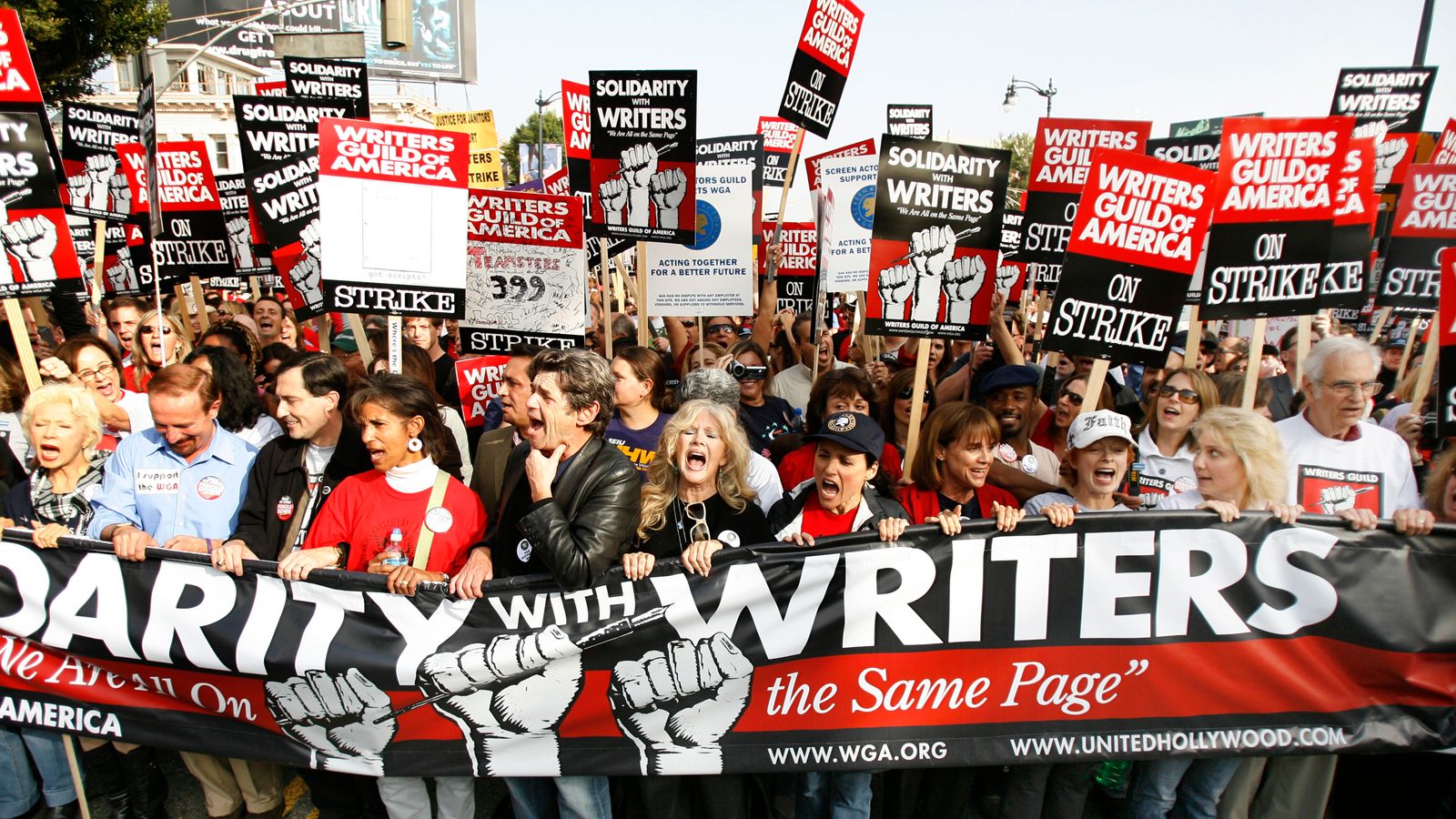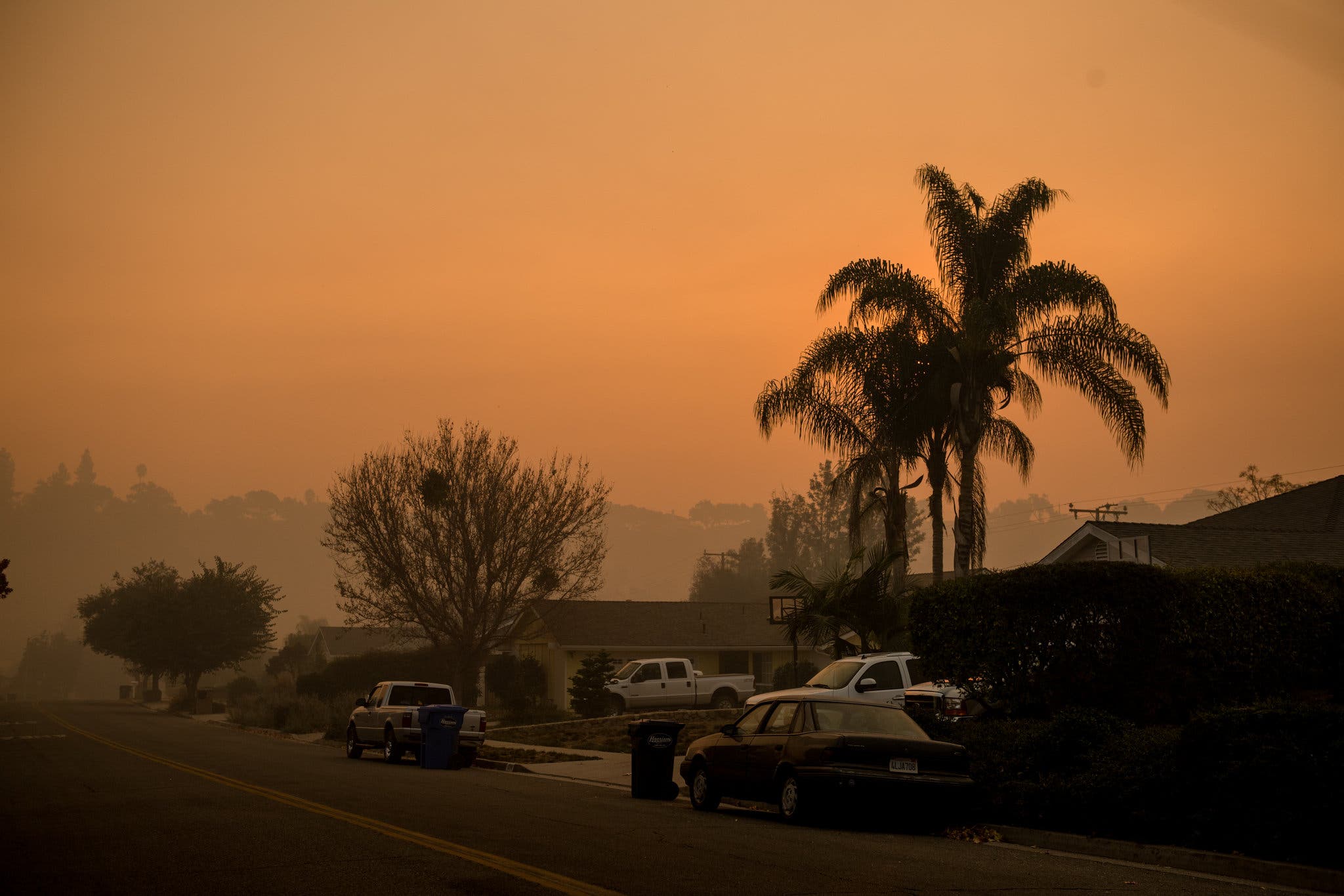Hollywood Shut Down: Writers And Actors Strike Impacts Film And Television

Table of Contents
Production Delays and Cancellations
The strike has immediately halted nearly all major film and television productions, creating a ripple effect across the entertainment landscape.
Impact on Film Schedules
Major movie releases are being significantly delayed. This impacts not only the planned release dates but also post-production work, marketing campaigns, and ultimately, box office performance. The longer the strike continues, the greater the potential financial losses for studios.
- Examples of delayed films: Many major studio releases have already been pushed back, impacting the summer and fall movie seasons. Specific titles will vary based on the ongoing situation, but this will heavily affect major studio earnings.
- Studio financial implications: Studios are losing money daily due to stalled production and marketing delays. This loss extends beyond direct production costs to include marketing, distribution, and potential loss of revenue from missed release windows.
- Ripple effects on post-production: Post-production work, including editing, visual effects, and sound mixing, is also significantly impacted, leading to further delays and increased costs.
Television Production Ground to a Halt
Network and streaming television series are experiencing significant delays or complete cancellations. This impacts release schedules, content pipelines, and the ability of streaming services to maintain subscriber engagement. The lack of new content directly affects viewer satisfaction and potential churn.
- Examples of delayed or cancelled TV shows: Numerous television shows, both scripted and unscripted, have been affected, causing uncertainty for viewers and production crews alike. The ongoing impact on the television landscape is considerable.
- The impact on streaming services: Streaming platforms rely heavily on a constant stream of new content to retain subscribers. The strike directly threatens this, potentially leading to a loss of subscribers and reduced revenue.
- Potential for loss of subscribers: Viewers may cancel their subscriptions if their favorite shows are delayed indefinitely or cancelled completely. The long-term impact on viewer habits remains to be seen.
Financial Ramifications for the Entertainment Industry
The Hollywood strike is costing the entertainment industry billions of dollars daily, affecting various stakeholders from major studios to local businesses.
Studio Losses
Major studios are experiencing significant financial losses due to halted productions and delayed releases. The longer the strike lasts, the more severe these losses will become.
- Estimates of daily losses: While precise figures are difficult to obtain, estimates of daily losses are in the hundreds of millions of dollars, affecting the bottom line for major entertainment conglomerates.
- Impact on studio profits: The impact on annual studio profits could be substantial, affecting shareholder returns and investment strategies. The knock-on effect on the stock market is significant.
- Stock market reactions: The entertainment industry's stock prices have already reflected the negative impacts of the strike, with investors reacting to the uncertainty and potential for long-term losses.
Impact on Local Economies
Production shutdowns significantly affect local economies reliant on film and television production, leading to job losses in various support industries.
- Examples of affected industries (catering, transportation, etc.): Many local businesses, including catering companies, transportation services, and equipment rental companies, are directly affected by the lack of production activity.
- Job loss statistics: Thousands of jobs in support industries are at risk, leading to economic hardship for individuals and families in the affected communities. The full extent of job losses is still being assessed.
- Impact on local businesses: The financial impact extends to local restaurants, hotels, and other businesses that cater to the film and television industry.
Negotiations and Key Issues at Stake
The Hollywood strike highlights key issues faced by writers and actors, focusing on fair compensation, streaming residuals, and the ethical use of AI.
Fair Wages and Residuals
The core demand centers around fair compensation, particularly concerning streaming residuals. Actors and writers argue that the current payment structure is inadequate compared to traditional media models.
- Specific demands regarding residuals: Unions are pushing for a fairer share of streaming revenue, reflecting the significant profits generated by streaming platforms. Specific demands vary, but the core principle is equitable compensation for their creative work.
- Explanations of the current payment structure: The current system often involves lower payments for streaming than for traditional television and film, creating a disparity that actors and writers want to address.
- Comparison with past agreements: The unions are citing past agreements and the changing landscape of media consumption to justify their demands for a modernized payment structure.
The Role of Artificial Intelligence
Concerns about the use of AI in generating scripts and creating digital doubles are central to the negotiations. This raises significant questions about job security and creative control.
- Examples of AI's use in the industry: AI is increasingly used in various aspects of filmmaking, from scriptwriting to creating digital actors, leading to concerns about its potential to replace human talent.
- Specific concerns of writers and actors: Writers fear that AI could be used to replace their jobs entirely, while actors worry about the potential for their likenesses to be used without their consent or proper compensation.
- Potential long-term consequences: The impact of AI on the entertainment industry is a significant long-term concern, impacting not only employment but also the creative process itself.
Long-Term Effects on the Entertainment Landscape
The Hollywood strike could reshape the future of film and television production and distribution.
Potential for Industry Reform
The strike could lead to significant changes in how the entertainment industry operates, including fairer compensation models and regulations regarding AI usage.
- Potential future changes in contracts: The outcome of the strike could lead to improved contract terms for writers and actors, including better protection regarding residuals and AI usage.
- Possibilities for improved working conditions: The strike could lead to improved working conditions and a more equitable distribution of wealth within the entertainment industry.
- Potential for industry regulations: The strike could prompt government intervention, potentially leading to new regulations surrounding the use of AI and the compensation of creative workers.
Shifting Power Dynamics
The strike might shift power dynamics within the entertainment industry, giving writers and actors a stronger voice in negotiations.
- Potential for stronger union power: The strike could strengthen the bargaining power of unions, allowing them to negotiate more favorable terms in future contracts.
- Potential impact on studio decision-making: Studios may be forced to reconsider their business practices in response to the demands of the unions.
- Potential for long-term industry reform: The strike could serve as a catalyst for significant long-term changes in the industry, creating a more equitable and sustainable model for creative professionals.
Conclusion
The Hollywood strike, a significant event driven by concerns over fair compensation and the future of the industry, is having a far-reaching impact on film and television production, distribution, and the wider economy. The long-term effects remain to be seen, but it is clear that this "Hollywood strike" is forcing a critical conversation about the future of creative work in the digital age. Staying informed about the ongoing negotiations and their outcomes is crucial to understanding the future of the entertainment industry. Keep up-to-date on developments related to the Hollywood strike and its impact on your favorite shows and movies. Understanding the complexities of this Hollywood strike is essential for anyone interested in the future of film and television.

Featured Posts
-
 Analyzing The Difficulties Faced By Bmw And Porsche In The Chinese Automotive Market
May 04, 2025
Analyzing The Difficulties Faced By Bmw And Porsche In The Chinese Automotive Market
May 04, 2025 -
 Westbrooks Nba History Making Night Nuggets Warriors Game Highlights
May 04, 2025
Westbrooks Nba History Making Night Nuggets Warriors Game Highlights
May 04, 2025 -
 Russell Westbrooks Birthday Serenade For Nikola Jokic Nuggets Team Spirit
May 04, 2025
Russell Westbrooks Birthday Serenade For Nikola Jokic Nuggets Team Spirit
May 04, 2025 -
 Selling Sunset Star Highlights Landlord Price Gouging Following La Fires
May 04, 2025
Selling Sunset Star Highlights Landlord Price Gouging Following La Fires
May 04, 2025 -
 La Prevention Des Actes Insenses
May 04, 2025
La Prevention Des Actes Insenses
May 04, 2025
